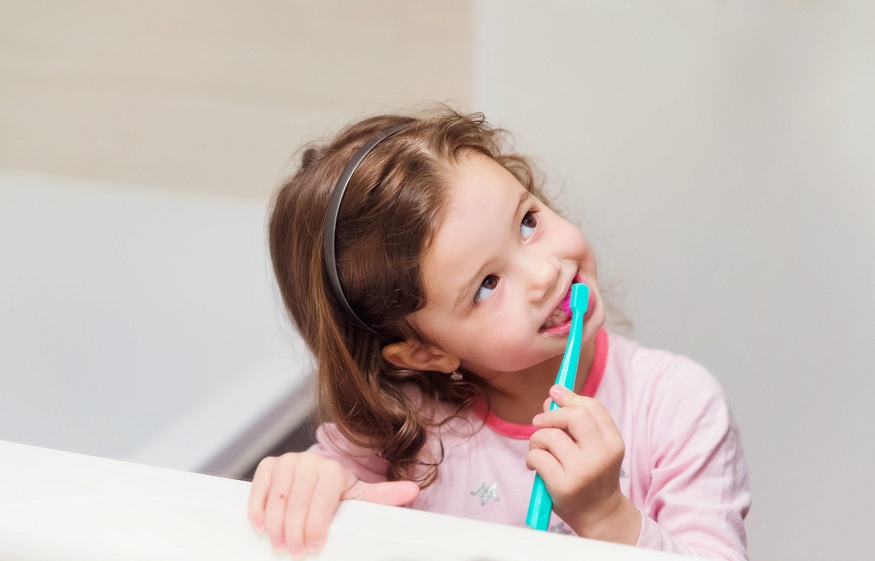The physical health of children is very important. Health problems can cause pain, in addition to short-term and long-term physical and psychological problems. In this article, we focus on children’s dental health and the importance of brushing your teeth. We base ourselves on the recommendations of the Canadian Dental Association and pediatric dentists .
Baby teeth, also called milk teeth, are the 20 teeth that appear in children before the age of 2 or 3 years . These teeth serve as a guide for the adult teeth that will follow. These are the adult teeth that will grow between the ages of 6 and 12, leading to baby teeth falling out.
For many parents, is something that is scary. Indeed, it is a painful process for children. They therefore cry frequently, and are often less pleasant than usual.
In particular, they recommend gently rubbing the child’s gums with a finger or the back of a small cold spoon. If the pain persists, the Association recommends going to see a dentist, pharmacist or doctor.
Indeed, it would be better to avoid syrups or teething gels that are rubbed on the gums. These cause a risk of choking and side effects. Similarly, teething cookies and teething necklaces can lead to various risks, including choking, strangulation and infection.
It is also important to note that teething does not cause physical problems like fever or diarrhea. So, if your child has such symptoms, it is important to see a doctor.
Should you brush baby’s teeth?
The answer is simple: yes. Baby’s teeth should be brushed as soon as the first tooth appears. To do this, dentists recommend placing the baby comfortably. Then the parent can gently rub the gums and teeth. It is important to do this gently so as not to damage the gums.
Dentists recommend brushing children’s teeth at least twice a day, including once at bedtime. They suggest using a small, soft toothbrush with a rounded tip to brush the child’s teeth. A toothbrush with the child’s favorite animated characters can help make the experience more enjoyable for the child. In addition, it is important to use toothpaste with fluoride to reduce the risk of cavities.
For children from 0 to 3 years old, it is important that an adult brushes the child’s teeth. Between 3 and 6 years old, children can do it themselves, but under the supervision of an adult. The adult can in particular check that the child does not put too much toothpaste.
Should you go to the dentist with your child?
Again, the answer is: yes. In addition to brushing the child’s teeth, it is important to make an appointment with the child’s dentist. It is recommended to see the dentist 6 months after the first tooth, or at the age of 12 months. Thereafter, the child will continue to see the dentist on a regular basis. These visits allow you to see if the brushing is adequate and to detect problems earlier.
It is important to help the child establish a positive psychological relationship with the dentist. To do this, you can use positive words to refer to the dentist, such as “the tooth fairy’s friend”. You should avoid using emotionally charged words, like fear and pain, so that these words don’t become associated with the dentist. Similarly, avoid speaking negatively about your own dental experiences.
You can even play an imaginary game where you pretend to go to the dentist. You can be the dentist and the child, the patient, then switch roles. Such play can help demystify the date and make it less scary for the child.
Why is it so important for children to brush their teeth?
There are several reasons why children’s dental hygiene is important, right from the first tooth.
First, some children will keep one of their baby teeth as an adult. In fact, 6% of children have a missing adult tooth . Without this adult tooth to replace the baby tooth, it therefore remains even as an adult. In the case of these children, it is therefore important that the baby’s teeth are healthy since they could remain in the long term.
Next, it is important to note that children can get cavities too. Cavities are often caused by sugar in the diet or poor brushing. As you know if you’ve ever had a cavity, getting a cavity repaired can be very painful. In addition, untreated cavities can affect the dental health of children. Indeed, untreated cavities can be particularly painful by killing the nerves and blood vessels in the tooth. In some cases, the tooth even has to be removed, which can cause problems with the way adult teeth grow.



